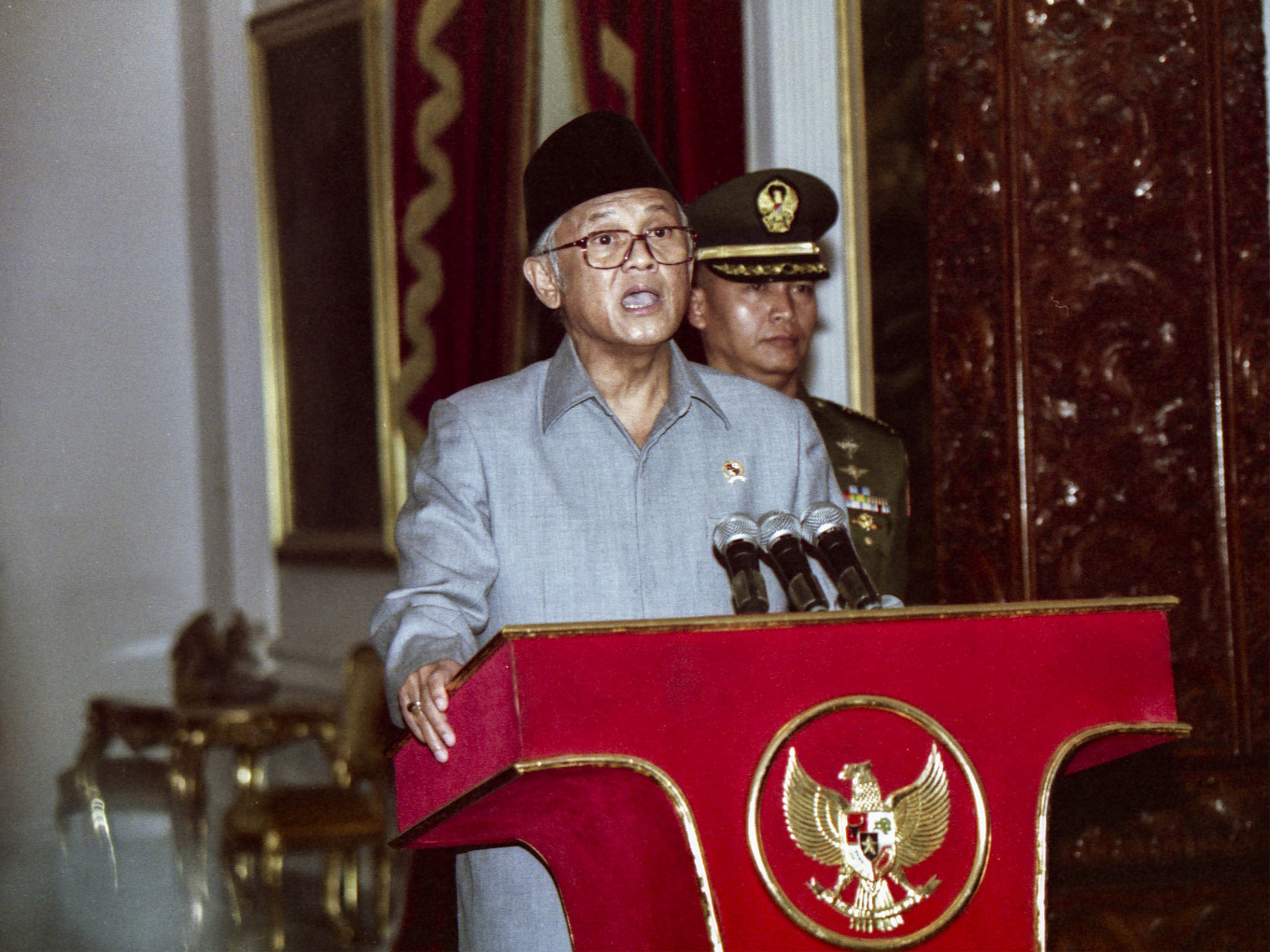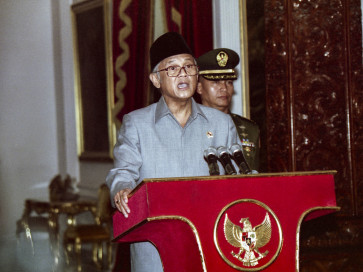Popular Reads
Top Results
Can't find what you're looking for?
View all search resultsPopular Reads
Top Results
Can't find what you're looking for?
View all search resultsHabibie’s legacy of democracy
“Uninterested to be a president” and “totally concentrate himself in technological realm” are clues in understanding his lone fight for democracy.
Change text size
Gift Premium Articles
to Anyone
I
n today’s intensifying political tension that seems to split Indonesian society, where could we find a mirror to reflect our democratic experience?
One of the answers could be found in the experience of Bacharuddin Jusuf Habibie, the Indonesian president from 1998 to 1999, in cementing the country’s democratic foundation. This experience unfolds in his interview by the authors of Democratic Transitions: Conversation with World Leaders, edited by Sergio Bitar and Abraham F. Lowenthal ( 2015 ). Apart from Habibie, the authors interviewed other leaders of democratic transition countries.
In the case of Indonesia, none else is recognized by the world as a democratic pioneer other than Habibie. Although having a radically brief time in government, Habibie’s leadership was crucial on the fate of Indonesian democracy. Why? As stated by Bahtiar Effendy and Mutiara Pertiwi in this book, there was another scenario should Habibie, who replaced Soeharto who stepped down in May 1998, have failed to run the country.
“General Wiranto as defense minister and commander of the armed forces, held Soeharto’s undisclosed instruction to rescue the nation by ‘all means necessary’ if there were a political emergency.” There was an existential uncertainty concerning not only Habibie’s presidential position, but also the future fate of democracy at the national level.
In the first part of his interview, Habibie said he was never interested in becoming president of Indonesia. He adds he was “never interested in becoming a minister.” What he wanted was to bring technology into Indonesia to produce airplanes. Habibie reached a deal with Soeharto in 1974 to build airplanes in Indonesia through a government-owned enterprise which was run like a private enterprise. “I did,” he says “and I delivered on schedule.”
“Uninterested to be a president” and “totally concentrate himself in technological realm” are clues in understanding his lone fight for democracy.
In my book, Esai Politik tentang Habibie (Political essay on Habibie) I chose the phrase “knowledge is power” in interpreting why Habibie had reached the power at a high pitch in Indonesia. Indonesian politics has transformed dramatically from the mass-based politics to the knowledge-based politics.


















